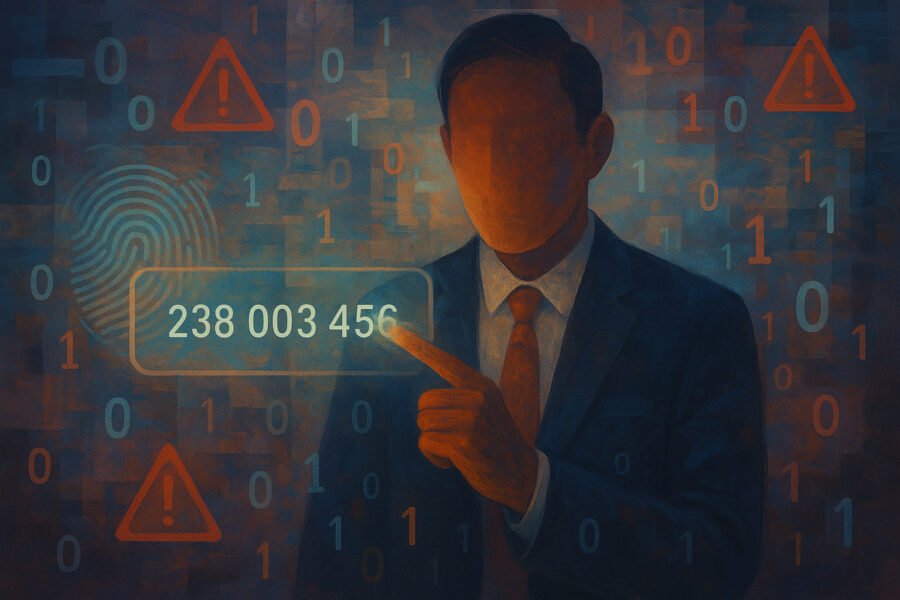A tax fraud operation has come to light in Hyderabad, implicating hundreds of IT professionals in a coordinated scam involving fictitious political donations. As the Income Tax Department investigates suspicious claims totalling over ₹110 crore, questions arise over how a sophisticated workforce manipulated legal grey areas to inflate personal tax refunds, sometimes claiming to donate up to 95% of their salaries.
The Plan
What began as a few suspicious tax filings flagged during routine assessments has turned into one of India’s most significant white-collar tax fraud investigations in recent memory. Officials from the Income Tax Department have now traced a web of falsified Section 80 GGC claims—a provision under the Income Tax Act that allows individuals to deduct contributions made to political parties, across 400+ employees from 36 tech and finance firms in Hyderabad.
What sets this case apart is the sheer audacity and scale: Employees, many in mid to senior-level positions, are alleged to have fabricated donation receipts, falsely claiming that they had contributed between 60% and 95% of their entire annual income to obscure or unrecognised political parties. In reality, there was no actual transaction. Sources within the investigation confirmed that in several cases, the ‘donation’ amount was returned in cash, minus a “service fee” of 10–15%, while the parties issued legitimate-looking receipts.
Shockingly, some tax returns were found to be filed from the same email ID across multiple employees, revealing a coordinated attempt to game the system using cloned formats, pre-written justifications, and shared digital infrastructure.
FCRF x CERT-In Roll Out National Cyber Crisis Management Course to Prepare India’s Digital Defenders
The Political Ploy: Section 80 GGC and Its Loophole
Section 80 GGC was introduced to encourage transparency in political financing, enabling individuals to support political causes and claim legitimate deductions. However, in the absence of stringent real-time verification, a parallel underground network appears to have emerged, exploiting this well-intentioned provision.
Many of the political entities listed in the fraudulent claims are unrecognised or dormant, lacking any digital or public presence. Several of them are believed to be front organisations, created solely to issue tax-exempt donation receipts, aiding individuals in getting massive refunds. Investigators suspect that these groups operated through middlemen who liaised with employees, offered “packages” for 10–30% of the claimed refund, and handled all documentation
Cleanup Mode: Warnings, Reforms, and Corporate Fallout
In response to the unfolding scandal, the Income Tax Department has issued advisories urging those involved to voluntarily correct their filings through updated returns (ITR-U) by March 31, 2025, to avoid penalties up to twice the original tax and potential prosecution under Sections 276 C and 277 of the Income Tax Act.
Several tech companies have since suspended 80 GGC declarations via payroll platforms as a precautionary measure, citing reputational and compliance risks. Internal HR and finance teams are now reviewing historical declarations made by employees and coordinating with legal teams to mitigate exposure.
To curb future abuse, the Central Board of Direct Taxes (CBDT) is reportedly considering mandatory cross-verification mechanisms for high-value deductions under political contributions. Additionally, awareness drives and workshops have been launched across Hyderabad’s IT corridors to educate employees on ethical tax filing and the risks of falling for such “shortcuts.”
A Hyderabad-based tax consultant stated that this isn’t just about ₹110 crore, it’s about the credibility of India’s digital tax infrastructure, and whether tech-savvy citizens are using their skills to build the nation, or break it.
As the probe continues and more names surface, the scam serves as a reminder: In an age of instant access and digital filing, integrity must be the first line of defence.
About the author – Prakriti Jha is a student at National Forensic Sciences University, Gandhinagar, currently pursuing B.Sc. LL.B (Hons.) with a keen interest in the intersection of law and data science. She is passionate about exploring how legal frameworks adapt to the evolving challenges of technology and justice.

